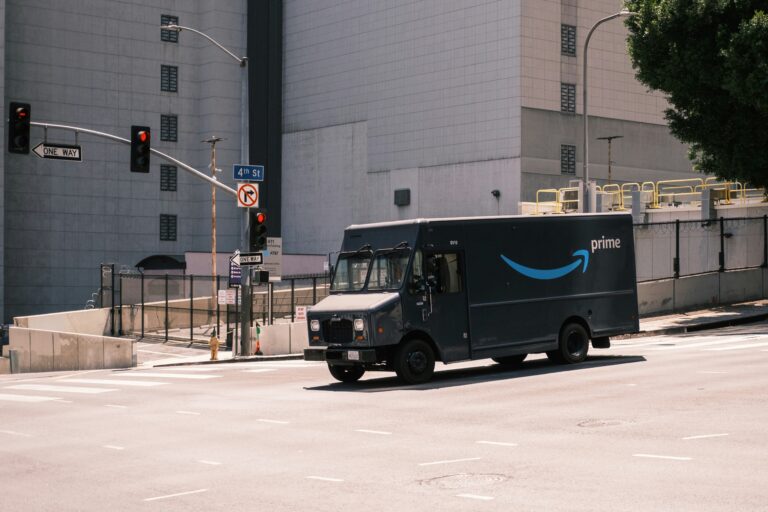
Veena Dubal is a professor of law at the University of California, Hastings.

Sanjukta Paul’s current research and writing involves the intersection of antitrust law and labor policy, in particular how and why antitrust law has limited the coordination rights of working people. Her book project on this topic will be published as Solidarity in the Shadow of Antitrust by Cambridge University Press. She is generally interested in the intersections of work regulation and the law of business, and in how law constructs economic life. Her papers include “Uber as For-Profit Hiring Hall: A Price-Fixing Paradox and its Implications” (spring 2017), published in the Berkeley Journal of Employment & Labor Law, and “The Enduring Ambiguities of Antitrust Liability for Worker Collective Action” (spring 2016), which was recognized with the Jerry S. Cohen Memorial Fund’s award for the best antitrust scholarship of 2016 (category prize), presented by the American Antitrust Institute. She is also contributing a chapter on antitrust and workers to the forthcoming Reviving American Labor (C. Garden and R. Bales, eds., Cambridge University Press, forthcoming). Paul previously served as David J. Epstein Fellow in Public Interest Law & Policy at UCLA Law School. There she designed and taught the Workers Rights Litigation Clinic, which represented low-wage workers in wage theft claims, and in a complex class action alongside local non-profit organizations. Prior to this fellowship, Paul practiced as a public interest lawyer in Los Angeles for several years, focusing on employment and civil rights litigation, as well as some labor union matters. During this time she also worked on the campaign to reform the working conditions in the port trucking industry with the policy nonprofit Los Angeles Alliance for a New Economy. Paul clerked for the Honorable Alfred T. Goodwin of the Ninth Circuit Court of Appeals. She is a graduate of Yale Law School, where she was a Coker Fellow, and studied philosophy at the University of Pittsburgh, where she held a national Mellon Fellowship in Humanistic Studies and earned an M.A.
This is the second part of a two-part post on AB5.
A concern that has been articulated about extending generally applicable labor regulation to the platform economy is that such regulation would benefit the big players while making it more difficult for smaller firms to compete. This argument is speculative at best. Instead, appropriate antitrust enforcement can and should address market dominance by the big players.
Notice first that this critique, if valid, would apply to virtually all labor regulation in all sectors. If labor regulation is a barrier to entry or a special problem for small players in ride-hailing, then it also poses the same problems in offline markets. Therefore, unless one is willing to accept the claim that labor regulation inherently ‘distorts markets,’ one ought to reject it here, too. But since there are no such things as market outcomes in abstraction from the legal construction of markets, the idea that labor regulation inherently distorts markets must be rejected. As I (Paul) argue in a forthcoming paper, as a logical matter competition law itself always allocates coordination rights—between firms and workers and also between dominant firms and smaller ones. A more pro-worker allocation of coordination rights is only a “distortion” of the status quo, not of ideal outcomes. The narrower version of the market dominance critique, on the other hand, seems to rely upon a kind of platform exceptionalism, which is also unfounded. There is nothing magical about an app that makes it less a form of market coordination than other, less technologically-sophisticated mechanisms.
One can always tell a just-so story about why regulation would hurt small business. But given dominant firms’ history of weaponizing such rhetoric against workers, we should look for a specific causal pathway before crediting such arguments. For example, it’s true that regulation ought not place higher burdens on small players; if anything, dominant firms should bear difficult-to-apportion costs of regulation. But if labor regulation simply applies equally to the dominant platforms and to smaller firms and new entrants, it is reasonable to conclude—absent some more specific evidence— that it will not be a major factor in product market competition.
The more specific version of the platform dominance critique of AB5 relies on the notion that under a regulated employment regime, gig workers would not be able to log on to two apps simultaneously because as employees, they would owe each of their competitor employers a duty of loyalty. The argument is that this will always benefit the dominant platforms over small players or new entrants because a worker will choose the firm with the larger existing network. This argument turns on an overly strong reading of the common law duty of loyalty and also overstates the extent to which “multi-homing” occurs now.
On the point of law, by way of analogy, a worker might be employed by two competing coffee shops. As long as she is not working for one employer while being paid by the other (or both), and as long as she is not sharing trade secrets or otherwise actively undermining the interests of one company or the other, she isn’t violating the duty of loyalty. It has been well over a century since the duty of loyalty was interpreted to prohibit “moonlighting” per se. Working for competitors is common among low-wage workers, who after all have little access to confidential information and no control over business strategy. We do not think that doing so (without more) constitutes a violation of the duty of loyalty, absent express agreement to this effect.
Moreover, the idea that discouraging multi-homing would benefit the dominant players at the expense of competitors overstates the extent to which this sort of competition occurs even now. Indeed, Uber and Lyft already implement non-linear pay policies that ensure that drivers are exclusive to a given platform during a given gig; drivers’ lack of bargaining power ensures that they are unable to contest these policies. While antitrust law might do something about this problem, it currently does not. Reviving antitrust law’s traditional disfavor of such domineering conduct would be one way to foster product market competition, and a better one that platform exceptionalism in the arena of already-meager labor standards. But instead, currently dominant platforms are able to have it both ways: they are able to exert direct control over drivers due to permissive antitrust law, and are able to disclaim that control for labor regulation purposes. AB5 is one way of calling this bluff.
If we really care about fostering a healthy ecosystem for small players in the economy, then there are policy levers available that are far superior to platform exceptionalism in the arena of basic labor standards. Most of all, antitrust law must reorient itself to deal with the dominant platforms, whose unique and asymmetrical rights to coordinate their markets typify the current antitrust paradigm’s unjustified preference for allocating coordination rights to big capital over small players—both small business and workers. Paradoxically, antitrust law has been deployed against platform workers’ coordination rights, while turning a blind eye to the platforms’ own price coordination. Antitrust law should address Uber’s and Lyft’s dominant market positions, which might even extend to remedies such as access to their networks for new entrants where appropriate. (Regulators could take steps to protect consumer privacy in effectuating this remedy, such a requiring an express opt-in.)
In the platform context, regulation that enhances workers’ bargaining positions may indeed have the opposite of the claimed effect on the viability of meaningful competition. Uber and Lyft have attained their dominant market positions in the first place by undercutting existing ride services businesses that were presumptively held to higher regulatory standards. Indeed, Judge Edward Chen recently green-lighted an unfair competition lawsuit by a competitor that advances precisely this theory against Uber. The Federal Trade Commission too ought to embrace its originally intended role of protecting fair competition, which by definition must include labor standards, thereby facilitating the survival of smaller businesses that treat their workers with dignity and respect. Moreover, with basic benefits (including a wage floor) in place after the passage of AB5, workers may have more leeway to try other, smaller platforms that may offer better working conditions or that have a business model which better reflects their skills or needs. They may also have more bargaining power to demand precisely the schedule flexibility they are currently largely denied, which in turn would benefit smaller competitors. Drivers would also be in a far better position to build their own apps and to compete with the platforms directly using a more cooperative, democratic business model.
In theory, labor platforms compete for gig workers. But without the enforcement of labor regulation, without meaningful antitrust enforcement, and with the availability of an ever-ready workforce (given structural unemployment), the ride-share duopoly has been able to drastically lower labor standards (and wages—Uber and Lyft drivers say they make 1/3 of what they made 5 years ago) and still maintain a sizeable workforce. Revived labor law and revived antitrust law can help to change this state of affairs. Both were originally intended to deconcentrate economic power and promote economic democracy. Reconceived according to those goals, they are friends, not competitors.






Daily News & Commentary
Start your day with our roundup of the latest labor developments. See all
April 16
EEOC publishes final regulation implementing the Pregnant Workers Fairness Act, Volkswagen workers in Tennessee gear up for a union election, and the First Circuit revives the Whole Foods case over BLM masks.
April 15
The Supreme Court ruled in favor of bakery delivery drivers in an exemption from mandatory arbitration case; A Teamsters Local ends its 18-month strike by accepting settlement payments and agreeing to dissolve
April 14
SAG-AFTRA wins AI protections; DeSantis signs Florida bill preempting local employment regulation; NLRB judge says Whole Foods subpoenas violate federal labor law.
April 12
The EEOC weighs in on an anti-discrimination lawsuit against Workday; a rule expanding overtime protection moves closer to publication; Amazon decreases spending on anti-union consultants.
April 11
Maine Legislature votes to grant farm workers minimum wage and labor rights; Apple store workers in New Jersey petition to unionize; and Wisconsin Governor vetoes legislation to rollback child labor laws.
April 10
NLRB general counsel vows not to succumb to pressure from SpaceX, Amazon, and others, the NLRB will seek make-whole remedies for unlawful work rules, and the LA County Federation of Labor joins the call for a ceasefire in Gaza.